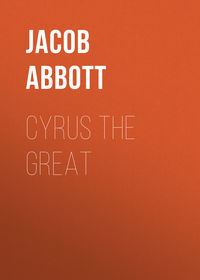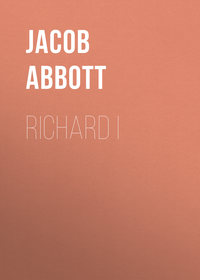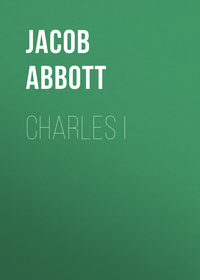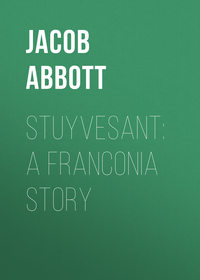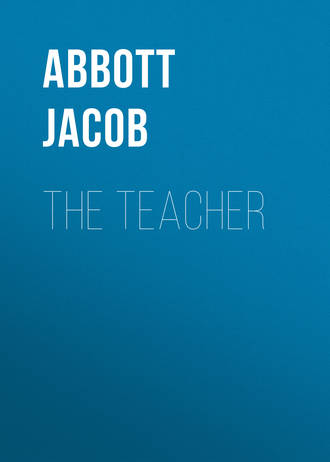
The Teacher
The boys seemed pleased with the plan, and the committees were appointed, two members on each. The master took care to give the quarrellers some share in the work, apparently forgetting, from this time, the unpleasant occurrence which had brought up the subject.
When the boys came to tell him their results, he asked them to make a little memorandum, in writing, as he might forget, before the time came for reading them. They brought him presently a rough scrap of paper, with the figures marked upon it. He told them he should forget which was the number of nails, and which the number of scholars, unless they wrote it down.
"It is the custom among men," said he, "to make out their report, in such a case, fully, so that it would explain itself; and I should like to have you, if you are willing, to make out yours a little more distinctly."
Accordingly, after a little additional explanation, the boys made another attempt, and presently returned, with something like the following:
The Committee for counting the nails report as follows:

The other report was very similar, though somewhat rudely written and expressed, and both were perfectly satisfactory to the preceptor, as he plainly showed by the manner in which he received them.
I need not finish the description of this case, by narrating, particularly, the reading of the reports, the appointment of a committee to assign the nails, and to paste up the names of the scholars, one to each. The work, in such a case, might be done in recesses, and out of school hours, and though, at first, the teacher will find, that it is as much trouble to accomplish business in this way, as it would be to attend to it directly himself,—yet after a very little experience, he will find that his pupils will acquire dexterity and readiness, and will be able to render him very material assistance in the accomplishment of his plans.
This, however, the assistance rendered to the teacher, is not the object. The main design is to interest the pupils, in the management and the welfare of the school,—to identify them, as it were, with it. It will accomplish this object; and every teacher, who will try the experiment, and carry it into effect, with any tolerable degree of skill, will find that it will, in a short time, change the whole aspect of the school, in regard to the feelings subsisting between himself and his pupils.
Each teacher, who tries such an experiment, will find himself insensibly repeating it, and after a time he may have quite a number of officers and committees, who are entrusted with various departments of business. He will have a secretary, chosen by ballot, by the scholars, to keep a record of all the important transactions in the school, for each day. At first, he will dictate to the secretary, telling him precisely what to say, or even writing it for him, and merely requiring him to copy it into the book provided for the purpose. Afterwards he will give him less and less assistance, till he can keep the record properly himself. The record of each day will be read on the succeeding, at the hour for business. He will have a committee of one or two to take care of the fire, and another to see that the room is constantly in good order. He will have distributors for each division of seats, to distribute books, and compositions, and pens, and to collect votes. And thus, in a short time, his school will become regularly organized, as a society, or legislative assembly. The boys will learn submission to the majority, in such unimportant things as may be committed to them: they will learn system and regularity; and every thing else that belongs to the science of political self government.
There are dangers, however. What useful practice has not its dangers? One of these is, that the teacher will allow these arrangements to take up too much time. He must guard against this. I have found from experience that fifteen minutes each day, with a school of 135, is enough. This ought never to be exceeded.
Another danger is, that the boys will be so engaged in the duties of their offices, as to neglect their studies. This would be, and ought to be, fatal to the whole plan. Avoid it in this manner. State publicly that you will not appoint any to office, who are not good scholars, always punctual, and always prepared; and when any boy, who holds an office, is going behind hand in his studies, say to him kindly, "You have not time to get your lessons, and I am afraid it is owing to the time you spend in helping me. Now if you wish to resign your office, so as to have a little more time for your lessons, you can. In fact, I think you ought to do it. You may try it for a day or two, and I will notice how you recite, and then we can decide."
Such a communication will generally be found to have a powerful effect. If it does not remedy the evil, the resignation must be insisted on. A few decided cases of this kind, will effectually remove the evil I am considering.
Another difficulty, which is likely to attend the plan of allowing the pupils of the school to decide some of the cases which occur, is, that it may tend to make them insubordinate; so that they will, in many instances, submit, with less good humor, to such decisions as you may consider necessary. I do not mean that this will be the case with all, but that there will be a few, who will be ungenerous enough, if you allow them to decide, sometimes, to endeavor to make trouble, or at least to show symptoms of impatience and vexation, because you do not allow them to decide always.
Sometimes this feeling may show itself by the discontented looks, or gestures, or even words, with which some unwelcome decision will be received. Such a spirit should be immediately and decidedly checked. It will not be difficult to check, and even entirely to remove it. On one occasion, when, after learning the wishes of the scholars on some subject which had been brought before them, I decided contrary to it, there arose a murmur of discontent, all over the room. This was the more distinct, because I have always accustomed my pupils to answer questions asked, and to express their wishes and feelings on any subject I may present to them, with great freedom.
I asked all those, who had expressed their dissatisfaction, to rise.
About one third of the scholars arose.
"Perhaps you understood, that when I put the question to vote, I meant to abide by your decision, and that, consequently, I ought not to have reversed it, as I did, afterwards?"
"Yes sir;" "yes sir;" they replied.
"Do you suppose it would be safe to leave the decision of important questions to the scholars in this school?"
"Yes sir;" "No sir." The majority were, however, in the affirmative.
Thus far, only those who were standing, had answered. I told them, that as they were divided in opinion, they might sit, and I would put the question to the whole school.
"You know," I continued, addressing the whole, "what sort of persons the girls, who compose this school are. You know about how many are governed, habitually, by steady principle, and how many by impulse and feeling. You know too, what proportion have judgment and foresight necessary to consider and decide independently, such questions as continually arise in the management of a school. Now suppose I should resign the school into your own hands, as to its management, and only come in to give instruction to the classes, leaving all general control of its arrangements with you; would it go on safely or not?"
As might have been foreseen, there was, when the question was fairly proposed, scarcely a solitary vote in favor of government by scholars. They seemed to see clearly the absurdity of such a scheme.
"Besides," I continued, "the Trustees of this school have committed it to my charge; they hold me responsible; the public hold me responsible, not you. Now if I should surrender it into your hands, and you, from any cause, should manage the trust unfaithfully, or unskilfully, I should necessarily be held accountable. I could never shift the responsibility upon you. Now it plainly is not just or right, that one party should hold the power, and another be held accountable for its exercise. It is clear, therefore, in every view of the subject, that I should retain the management of this school in my own hands. Are you not satisfied that it is?"
The scholars universally answered, "Yes sir." They seemed satisfied; and doubtless were.
It was then stated to them, that the object in asking them to vote, was, in some cases, to obtain an expression of their opinion or their wishes, in order to help me decide; and only in those cases where it was expressly stated, did I mean to give the final decision to them.
Still, however, if cases are often referred to them, the feeling will gradually creep in, that the school is managed on republican principles, as they call it; and they will, unless this point is specially guarded, gradually lose that spirit of entire and cordial subordination, so necessary for the success of any school. It should often be distinctly explained to them, that a republican government is one, where the power essentially resides in the community, and is exercised by a ruler, only so far as the community delegates it to him; whereas in the school, the government is based on the principle, that the power, primarily and essentially, resides in the teacher, the scholars exercising only such as he may delegate to them.
With these limitations and restrictions, and with this express understanding, in regard to what is, in all cases, the ultimate authority, I think there will be no danger in throwing a very large share of the business which will, from time to time, come up in the school, upon the scholars, for decision. In my own experience, this plan has been adopted with the happiest results. A small red morocco wrapper lies constantly on a little shelf, accessible to all. By its side, is a little pile of papers, about one inch by six, on which any one may write her motion, or her proposition, as they call it, whatever it may be, and when written, it is enclosed in the wrapper, to be brought to me at the appointed time for attending to the general business of the school. Through this wrapper, all questions are asked, all complaints entered, all proposals made. Is there discontent in the school? It shows itself by "propositions" in the wrapper. Is any body aggrieved or injured? I learn it through the wrapper. In fact it is a little safety valve, which lets off, what, if confined, might threaten explosion,—an index,—a thermometer, which reveals to me, from day to day, more of the state of public opinion in the little community, than any thing beside.
These propositions are generally read aloud; some cases are referred to the scholars for decision; some I decide myself; others are laid aside without notice of any kind; others still, merely suggest remarks on the subjects to which they allude.
The principles, then, which this chapter has been intended to establish, are simply these: in making your general arrangements, look carefully over your ground, consider all the objects which you have to accomplish, and the proper degree of time and attention, which each deserves. Then act upon system. Let the mass of particulars which would otherwise crowd upon you in promiscuous confusion, be arranged and classified. Let each be assigned to its proper time and place; that your time may be your own,—under your own command,—and not, as is too often the case, at the mercy of the thousand accidental circumstances, which may occur.
In government, be yourself supreme, and let your supremacy be that of authority. But delegate power, as freely as possible, to those under your care. Show them that you are desirous of reposing trust in them, just so far as they show themselves capable of exercising it. Thus interest them in your plans, and make them feel, that they participate in the honor or the disgrace of success or failure.
I have gone much into detail in this chapter, proposing definite measures by which the principles I have recommended, may be carried into effect. I wish, however, that it may be distinctly understood, that all I contend for, is the principles themselves; no matter what the particular measures are, by which they are secured. Every good school must be systematic; but they need not all be on precisely the same system. As this work is intended almost exclusively for beginners, much detail has been admitted, and many of the specific measures here proposed, may perhaps be safely adopted, where no others are established. There may also perhaps be cases, where teachers, whose schools are already in successful operation, may engraft, upon their own plans, some things which are here proposed. If they should attempt it, it must be done cautiously and gradually. There is no other way by which they can be safely introduced or even introduced at all. This is a point of so much importance, that I must devote a paragraph to it, before closing the chapter.
Let a teacher propose to his pupils, formally, from his desk, the plan of writing propositions, for example, and procure his wrapper, and put it in its place;—and what would be the result? Why, not a single paper, probably, could he get, from one end of the week to the other. But let him, on the other hand, when a boy comes to him to ask some question, the answer to which many in the school would equally wish to hear, say to the inquirer:
"Will you be so good as to write that question, and put it on my desk, and then, at the regular time, I will answer it to all the school."
When he reads it, let him state, that it was written at his request, and give the other boys permission to leave their proposals or questions on his desk, in the same way. In a few days, he will have another, and thus the plan may be gently and gradually introduced.
So with officers. They should be appointed among the scholars, only as fast as they are actually needed, and the plan should thus be cautiously carried only so far as it proves good on trial. Be always cautious about innovations and changes. Make no rash experiments on a large scale, but always test your principle in the small way, and then, if it proves good, gradually extend its operation, as circumstances seem to require.
By thus cautiously and slowly introducing plans, founded on the systematic principles here brought to view, a very considerable degree of quiet, and order, and regularity may be introduced into the largest and most miscellaneous schools. And this order and quiet are absolutely necessary, to enable the teacher to find that interest and enjoyment in his work, which were exhibited in the last chapter; the pleasure of directing and controlling mind, and doing it, not by useless and anxious complaints, or stern threats and painful punishments; but by regarding the scene of labor in its true light, as a community of intellectual and moral beings, and governing it by moral and intellectual power. It is, in fact, the pleasure of exercising power. I do not mean arbitrary, personal authority, but the power to produce, by successful but quiet contrivance, extensive and happy results;—the pleasure of calmly considering every difficulty, and without irritation or anger, devising the proper moral means to remedy the moral evil: and then the interest and pleasure of witnessing its effects.
CHAPTER III.
INSTRUCTION
There are three kinds of human knowledge which stand strikingly distinct from all the rest. They lie at the foundation. They constitute the roots of the tree. In other words, they are the means, by which all other knowledge is acquired. I need not say, that I mean, Reading, Writing, and Calculation.
Teachers do not perhaps always consider, how entirely and essentially distinct these three are from all the rest. They are arts; the acquisition of them is not to be considered as knowledge, so much as the means, by which knowledge may be obtained. A child, who is studying Geography, or History, or Natural Science, is learning facts,—gaining information; on the other hand, the one who is learning to write, or to read, or to calculate, may be adding little or nothing to his stock of knowledge. He is acquiring skill, which, at some future time, he may make the means of increasing his knowledge, to any extent.
This distinction ought to be kept constantly in view, and the teacher should feel that these three fundamental branches stand by themselves, and stand first in importance. I do not mean to undervalue the others, but only to insist upon the superior value and importance of these. Teaching a pupil to read, before he enters upon the active business of life, is like giving a new settler an axe, as he goes to seek his new home in the forest. Teaching him a lesson in history, is, on the other hand, only cutting down a tree or two for him. A knowledge of natural history, is like a few bushels of grain, gratuitously placed in his barn; but the art of ready reckoning, is the plough, which will remain by him for years, and help him to draw out from the soil an annual treasure.
The great object, then, of the common schools in our country, is to teach the whole population to read, to write, and to calculate. In fact, so essential is it, that the accomplishment of these objects should be secured, that it is even a question whether common schools should not be confined to them. I say it is a question, for it is sometimes made so, though public opinion has decided, that some portion of attention, at least, should be paid to the acquisition of additional knowledge. But after all, the amount of knowledge, which is actually acquired at schools, is very small. It must be very small. The true policy is, to aim at making all, good readers, writers, and calculators, and to consider the other studies of the school important, chiefly as practice, in turning these arts to useful account. In other words, the scholars should be taught these arts, thoroughly, first of all, and in the other studies, the main design should be to show them how to use, and interest them in using, the arts they have thus acquired.
A great many teachers feel a much stronger interest in the one or two scholars they may have, in Surveying, or in Latin, than they do in the large classes, in the elementary branches, which fill the school. But a moment's reflection will show, that such a preference is founded on a very mistaken view. Leading forward one or two minds, from step to step, in an advanced study, is certainly far inferior, in real dignity and importance, to opening all the stores of written knowledge, to fifty or a hundred. The man who neglects the interests of his school, in these great branches, to devote his time to two or three, or half a dozen older scholars, is unjust both to his employers and to himself.
It is the duty, therefore, of every teacher, who commences a common district school, for a single season, to make, when he commences, an estimate, of the state of his pupils, in reference to these three branches. How do they all write? How do they all read? How do they calculate? It would be well if he would make a careful examination of the school, in this respect. Let them all write a specimen. Let all read; and let him make a memorandum of the manner, noticing how many read fluently, how many with difficulty, how many know only their letters, and how many are to be taught these. Let him ascertain also, what progress they have made in Arithmetic,—how many can readily perform the elementary processes, and what number need instruction in these. After thus surveying the ground, let him form his plan, and lay out his whole strength in carrying forward, as rapidly as possible, the whole school, in these studies. By this means he is acting, most directly and powerfully, on the intelligence of the whole future community in that place. He is opening to fifty or a hundred minds, stores of knowledge, which they will go on exploring, for years to come. What a descent now from such a work as this, to the mere hearing of the recitation of half a dozen boys in Surveying!
I repeat it, that a thorough and enlightened survey of the whole school should be taken, and plans formed for elevating the whole mass, in those great branches of knowledge, which are to be of immediate practical use to them in future life.
If the school is of higher order, the teacher should, in the same manner, before he forms his plans, consider well what are the great objects which he has to accomplish. He should ascertain what is the existing state of his school, both as to knowledge and character;—how long, generally, his pupils are to remain under his care,—what are to be their future stations and conditions in life, and what objects he can reasonably hope to effect for them, while they remain under his influence. By means of this forethought, and consideration, he will be enabled to work understandingly.
It is desirable, too, that what I have recommended, in reference to the whole school, should be done with each individual. Ascertain, (by other means however than formal examination,) to what stage his education has advanced, and deliberately consider what objects you can reasonably expect to effect for him, while he remains under your care. You cannot indeed always form your plans to suit, so exactly, your general views in regard to the school and to individuals, as you could wish. But these general views will, in a thousand cases, modify your plans, or affect in a greater or less degree, all your arrangements. They will keep you to a steady purpose, and your work will go on far more systematically and regularly, than it would, if, as in fact many teachers do, you were to come headlong into your school, take things just as you find them, and carry them forward at random, without end or aim.
This survey of your field being made, you are prepared to commence definite operations, and the great difficulty, in carrying your plans into effect, is, how to act more efficiently on the greatest numbers at a time. The whole business of public instruction, if it goes on at all, must go on by the teacher's skill in multiplying his power, by acting on numbers at once. In most books on education, we are taught, almost exclusively, how to operate on the individual. It is the error into which theoretic writers almost always fall. We meet, in every periodical, and in every treatise, and in fact, in almost every conversation on the subject, with remarks, which sound very well by the fire-side, but they are totally inefficient and useless in school, from their being apparently based upon the supposition, that the teacher has but one pupil to attend to at a time. The great question in the management of schools, is not, how you can take one scholar, and lead him forward, most rapidly, in a prescribed course, but how you can classify and arrange numbers, comprising every possible variety, both as to knowledge and capacity, so as to carry them all forward effectually together.
The extent to which a teacher may multiply his power, by acting on numbers at a time, is very great. In order to estimate it, we must consider carefully what it is, when carried to the greatest extent, to which it is capable of being carried, under the most favorable circumstances. Now it is possible for a teacher to speak so as to be easily heard by three hundred persons, and three hundred pupils can be easily so seated, as to see his illustrations or diagrams. Now suppose that three hundred pupils, all ignorant of the method of reducing fractions to a common denominator, and yet all old enough to learn, are collected in one room. Suppose they are all attentive and desirous of learning, it is very plain that the process may be explained to the whole at once, so that half an hour spent in that exercise, would enable a very large proportion of them to understand the subject. So, if a teacher is explaining to a class in Grammar, the difference between a noun and verb, the explanation would do as well for several hundred, as for the dozen who constitute the class, if arrangements could only be made to have the hundreds hear it. But there are, perhaps, only a hundred in the school, and of these a large part understand already the point to be explained, and another large part are too young to attend to it. I wish the object of these remarks not to be misunderstood. I do not recommend the attempt to teach on so extensive a scale; I admit that it is impracticable; I only mean to show in what the impracticability consists, namely, in the difficulty of making such arrangements as to derive the full benefit from the instructions rendered. They are, in the nature of things, available to the extent I have represented, but, in actual practice, the full benefit cannot be derived. Now, so far as we thus fall short of this full benefit, so far there is, of course, waste; and it is difficult or impossible to make such arrangements as will avoid the waste, in this manner, of a large portion of every effort, which the teacher makes.



